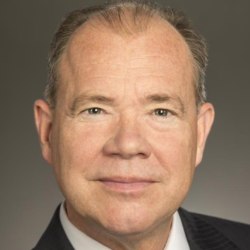Government Unions Move to Extend "Temporary" Income Tax Increases
A coalition of government employee unions has filed an initiative that would extend the temporary income tax hikes that were contained in Proposition 30 and approved by voters in 2012.
If this seems like, in the immortal words of Yogi Berra, “déjà vu all over again,” it’s not your imagination. This is just the tax raisers running their favorite play from “The Book of Dirty Tricks on Taxpayers.” First they persuade taxpayers to accept a tax by marketing it as temporary. Once taxpayers have become inured to paying it, the tax raisers move in to extend it or make it permanent.
Big spending politicians and their allied government employee unions count on taxpayers having short memories to make this scam work. For example, look at the 1.25% sales tax increase political elites pushed in 1991 to deal with a budget gap. A half-cent was supposed to be temporary but when it came time to expire the Legislature placed it on the ballot promoting it as necessary for “public safety.” Voters — by then used to paying the higher tax — swallowed the hook and we continue to pay the entire 1.25% increase initiated almost twenty-five years ago.
There is a saying in football that if a play works once, keep running it until the opposition shows they can stop it. In 2009, the Legislature achieved the two-thirds vote to impose two year increases in state sales and income taxes. Immediately they placed on the ballot, in a special election, an extension of these taxes for two additional years. Voters, still shocked by being hit with stiff tax increases, were having none of it and rejected the extension by almost two to one.
Realizing they had not waited long enough to allow taxpayers to become accustomed to higher taxes, government employee unions, working with Gov. Brown returned to the ballot in 2012 with another “temporary” increase in sales and income taxes in the form of Proposition 30. As the primary spokesman for the tax, the governor traveled the state repeating the mantra, “It’s for the schools, its temporary.” Voters were persuaded to approve another “temporary” tax increase. Now those who benefit the most from higher revenues – California has the highest-paid state and local public employees in all 50 states according to the Department of Labor – are back seeking to extend taxes, that were scheduled to expire in 2019, for another dozen years.
If the Proposition 30 extension, now being called the School Funding and Budget Stability Act, appears on the ballot, it has a good chance to pass. This is because the burden will fall on a minority, upper income taxpayers, and many voters will overlook that high taxes will cause some of our most successful residents to leave for more tax-friendly states, meaning that they will no longer pay any taxes to California.
The most important thing for voters to remember, however, is that if they agree to any temporary tax, it may as well be considered as permanent. As for the Proposition 30 temporary tax, it likely will join the ranks of other “temporary” taxes that seem never to disappear. Among those is the federal telephone tax established to pay for the Spanish American War, which remained in place for 108 years after the war ended.
Jon Coupal is president of the Howard Jarvis Taxpayers Association — California’s largest grass-roots taxpayer organization dedicated to the protection of Proposition 13 and the advancement of taxpayers’ rights.
